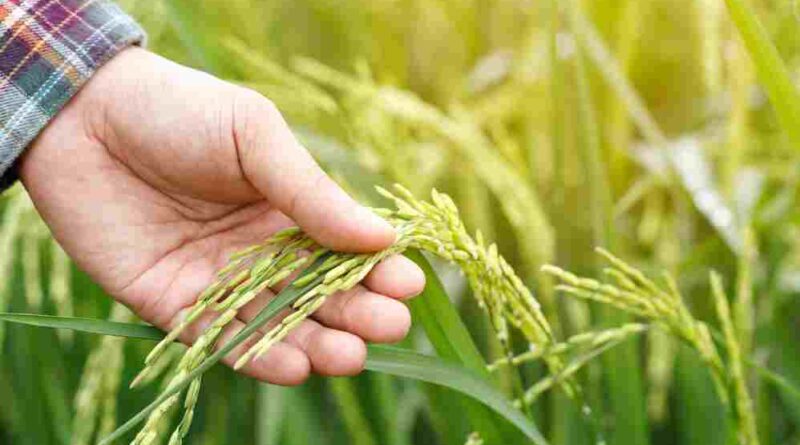PM-KISAN Yojana Uplifts Telangana Farmers, Reinforcing Government’s Focus on Rural Welfare
Standing under the blazing Telangana sun, farmer Narayana Reddy gently presses a handful of soil between his fingers. “This land feeds us, but sometimes it forgets to give,” he says with a faint smile. For thousands like him across the state, farming is more than an occupation — it’s an inheritance, a hope, and often, a struggle. In recent years, one government scheme has been repeatedly cited by farmers as a consistent source of financial relief: the Pradhan Mantri Kisan Samman Nidhi (PM-KISAN).
The PM-KISAN initiative, launched in 2019, has since become a financial lifeline for over 11 crore farmer families across the country. In Telangana, its impact is especially evident as small and marginal farmers continue to navigate the fluctuating costs of seeds, fertilizers, and unpredictable climate patterns. Under this scheme, eligible farmers receive ₹6,000 annually in three equal instalments — a modest but steady support system that many say has made a difference.
A Tangible Promise to the Farming Community
Speaking at a recent farmers’ meet in Karimnagar, Union Minister Bandi Sanjay Kumar emphasized that the PM-KISAN scheme isn’t just about the money — it’s a symbol of respect and recognition for the farmers’ relentless contribution to the nation. “This government doesn’t make empty promises. Every rupee that reaches the farmer’s bank account is proof of our commitment,” he said, drawing applause from a crowd of rural citizens.
Farmers attending the event echoed similar sentiments. Rekha Devi, who owns a 2-acre cotton farm in Warangal, shared how the timely credit from PM-KISAN helped her avoid turning to moneylenders during a dry spell. “It may not be a huge amount, but it gives us breathing space. It feels like someone in Delhi hasn’t forgotten us,” she said.
Ease of Access and Direct Benefit Transfers
One of the most appreciated features of the PM-KISAN scheme is its direct transfer mechanism. Funds are deposited directly into the beneficiary’s bank account, eliminating middlemen and reducing the scope for delays or corruption. Digital transparency is at the heart of the process, and the central government has invested in streamlining databases to ensure deserving farmers receive their due benefits.
Officials from the Telangana agriculture department confirmed that the verification process has become more efficient, with Aadhaar-linked databases making the process both secure and inclusive. “The initiative is not just a financial boost. It’s part of a larger vision to digitize rural welfare delivery,” said a senior official on condition of anonymity.
A Model for Future Farmer Welfare Schemes
PM-KISAN is just one part of a broader mosaic of agricultural reforms aimed at improving farmers’ quality of life. From crop insurance under PM Fasal Bima Yojana to soil health cards and irrigation support, the current administration has placed rural development high on its policy agenda. However, many stakeholders argue that while schemes like PM-KISAN provide relief, deeper structural reforms are needed to address the root causes of agrarian distress — including access to markets, fair pricing, and long-term sustainability.
That said, what sets PM-KISAN apart is its accessibility and consistency. In an environment where many welfare programs become lost in bureaucracy or regional politics, this scheme has managed to stay largely apolitical and functional.
Opposition Critique and Public Trust
Predictably, not all political voices are singing praises. Some opposition leaders argue that the amount is too little to make a significant difference and frame it as a temporary band-aid rather than a solution. But farmers on the ground seem to feel otherwise. “Something is better than nothing,” said Mallesham, a 60-year-old rice farmer. “When the government deposits that ₹2,000, it reminds me that I matter.”
It’s this human connection — the subtle acknowledgment of the farmer’s worth — that has perhaps made PM-KISAN more than just a scheme. It’s become a symbol of political accountability and rural inclusion.
Looking Ahead
As the nation eyes the next round of elections, rural India remains a crucial constituency. With over half the population still dependent on agriculture directly or indirectly, welfare schemes like PM-KISAN are no longer just about aid — they are about dignity, empowerment, and the story of a country that still leans on its farmers.
For farmers like Narayana Reddy, the scheme doesn’t solve every problem, but it does something equally important — it tells them they’re seen. And in the quiet struggles of rural life, that recognition can mean everything.
Disclaimer
The information and content shared on digitalgithub.com — including articles, blogs, news, guides, and other resources — is intended for general informational and educational purposes only. We do not guarantee the completeness, reliability, or suitability of any information. Always seek the guidance of a qualified professional before making decisions based on the information you read. Use this site at your own risk.

